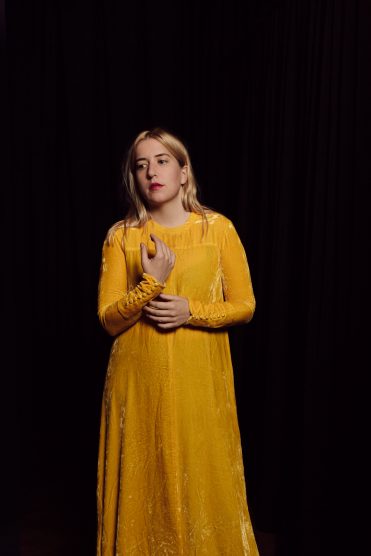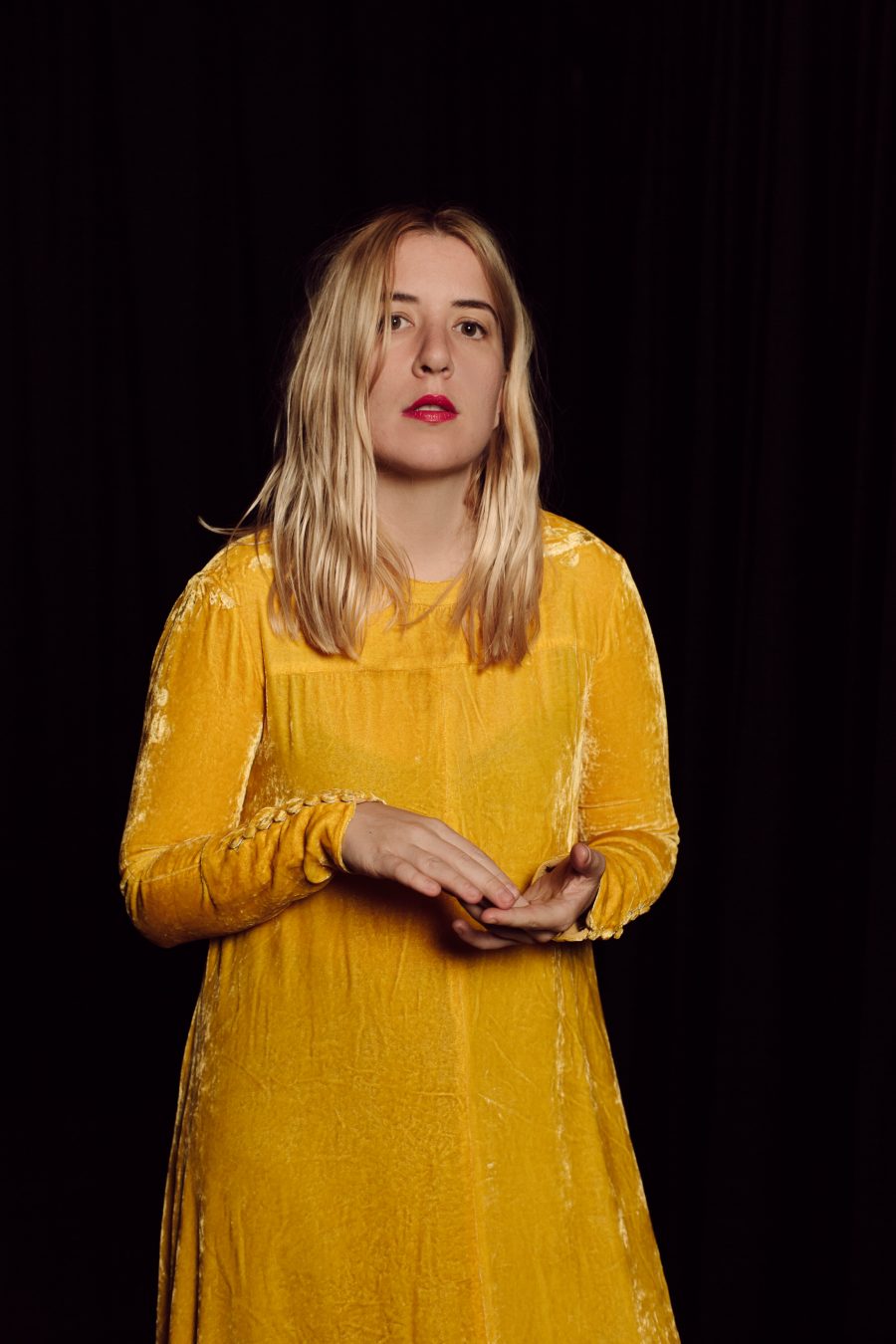Since 2016’s United States presidential election, much of the collective public has felt a general sense of unease over what will happen next. In short: Trump happened, and everything changed. For Katie Stelmanis, the leader of Canadian synth-pop outfit Austra, the Republican’s victory cast a weary shadow on how people have interpreted her act’s third album, Future Politics. Though the full-length was released on the same day as Trump’s inauguration, it isn’t a direct critique on the divisive figurehead. But, perhaps in light of the times, the title track’s powerfully oscillated electronic melodies and almost operatic vocals about pushing against the system have resonated with anyone desperately seeking a brighter tomorrow.
“I was speaking more about people’s personal politics, changing the way people think, and it totally got appropriated to be a record about politics—specifically politics that are happening in the U.S., and the politics that are happening in Europe right now,” the artist explains from the backstage area of Vancouver’s Imperial theatre, shortly ahead of a full-house performance. While Austra has built up a strong following since issuing their 2011 debut LP Feel It Break, it’s clear that this latest song cycle has connected deeply with the band’s still-growing fanbase. “It’d be interesting to see if people would’ve responded to it differently,” Stelmanis says, pondering how much the current political climate has propped up the record’s success. “Maybe it would have been less popular; maybe it would’ve been more popular.”
The roots of Future Politics were formed when Stelmanis took a break from touring to work on writing, leaving her then-home of Montreal with a one-way ticket to Mexico City. From beats and melodies to lyrics, roughly half of the album took shape there. When she wasn’t working, Stelmanis studied the local architecture. “All the buildings are pink, yellow, blue, green, purple,” she explains. “It’s just a really busy city, a really vibrant city.” Making use of these energetic swashes, the album cover finds a figure in an all-crimson outfit leading a horse in front of the pink pastel walls of Luis Barragán’s famous Cuadra San Cristobal.

Mexico seeps into the themes of Future Politics as well. Closing song “43,” a spectral shuffle replete with 1980s-period drum machine clacks, is a tribute to the 43 college students who mysteriously disappeared in 2014. It’s suspected that the local authorities were complicit, leading Stelmanis to deliver pointed lines like, “Secrets of the cops are covering up the reasons.” And the horrors of climate change are addressed in “Gaia.” Above a soundscape juxtaposing gossamer strands of sound with driving rhythms, Stelmanis’s vibrato aches for Mother Earth. “It’s a song based on a deep personal sadness about the destruction of the environment,” she says. “At the time, I was reading about how the Great Barrier Reef won’t exist in 50 years. It’s so deeply tragic that we’re destroying our natural world.”
While it’s easy to tune out the problems facing modern society, Stelmanis chooses to speak up. On “We Were Alive,” she acknowledges “it’s true, I believed in nothing before,” but the song is ultimately an anti-apathy anthem. Whether it’s counter-protesting hate rallies in the Southern U.S., or contemplating one’s own carbon footprint, she has noticed that many others in the world are speaking out, too. “I guess it was about our generation waking up, which I feel is happening,” Stelmanis explains. “Five years ago, we were much more in a little bubble than we are now, now that the world is starting to crumble around us. People are more engaged in politics because it’s becoming more necessary.”
Earlier in 2017, a spike in sales of George Orwell’s iconic 1984 on Amazon.com suggested that people have been trying to escape, or at least understand, the threat of contemporary authoritarianism. Stelmanis’s own Orwellian experience comes as she’s begun reading Homage to Catalonia, a selection inspired by discussions she had overseas regarding the last century’s Spanish Civil War and the current instability ripping through the country. An early press release for Future Politics, however, called for “a commitment to replace the approaching dystopia.” Touring with Austra has afforded Stelmanis the chance to speak with countless others likewise looking to get past the gloom. “That’s been the most valuable thing,” she says. “Just being able to create this collective conversation.” Maybe this is the utopian vision of Future Politics.
Keep listening: browse our music stories.










